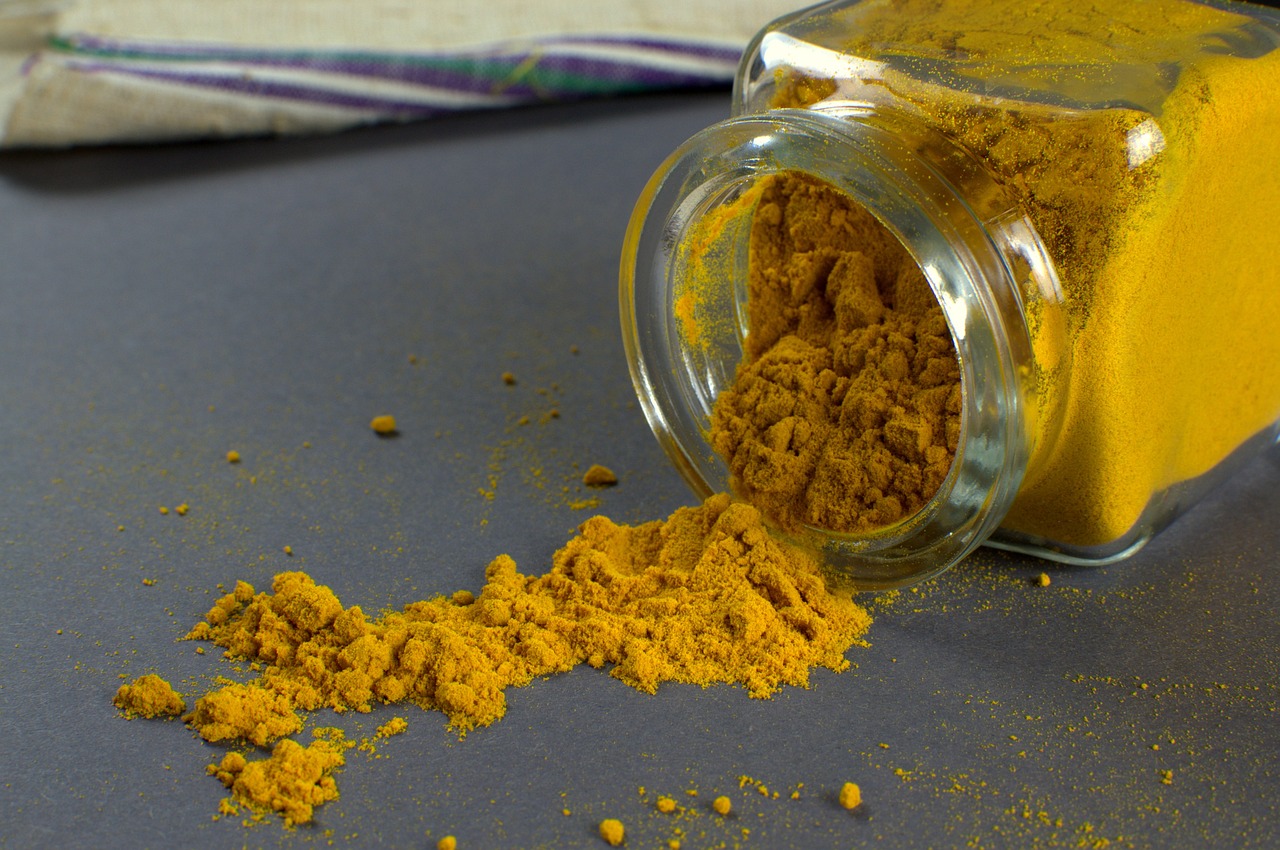Turmeric, the golden spice celebrated for its numerous health benefits, has been a staple ingredient in many culinary traditions for centuries. From adding vibrant color to delicious curries to providing a boost of antioxidants, this magical spice seems to have it all. However, one might wonder if there are any potential side effects of consuming turmeric. While turmeric is generally considered safe in moderate amounts, it’s important to be aware of certain precautions for individuals with specific medical conditions. In this article, we will explore the potential side effects of consuming turmeric and guide you on how to enjoy its benefits responsibly.
Overview
What is turmeric?
Turmeric is a vibrant yellow spice that is derived from the Curcuma longa plant, native to South Asia. It has been used for centuries in traditional Ayurvedic medicine and is well-known for its distinctive flavor and color. Turmeric contains a compound called curcumin, which is responsible for its many health benefits.
Common uses of turmeric
Turmeric is a versatile spice that can be used in various culinary dishes. It adds a warm and earthy flavor to curries, soups, and stews. It is also commonly used to flavor rice dishes, marinades, and sauces. Additionally, turmeric is a popular ingredient in beverages such as golden milk and turmeric tea.
Health benefits of turmeric
Turmeric is known for its numerous health benefits. It is a powerful antioxidant that helps protect the body from damage caused by harmful free radicals. Curcumin, the active compound in turmeric, has anti-inflammatory properties that can help reduce inflammation in the body. Turmeric has also been associated with improved brain health, lower risk of heart disease, and potential cancer-fighting properties.
Potential Side Effects
While turmeric is generally safe for most people when consumed in moderation, it is important to be aware of potential side effects. Here are some possible side effects of consuming turmeric:
Allergic reactions
Some individuals may be allergic to turmeric. Allergic reactions can range from mild symptoms such as sneezing and itching to more severe symptoms like difficulty breathing and swelling of the face or throat. If you experience any allergic reactions after consuming turmeric, it is important to seek medical attention immediately.
Stomach issues
Consuming large amounts of turmeric may cause digestive problems for some individuals. These can include stomach pain, bloating, and diarrhea. If you have a history of digestive issues or a sensitive stomach, it is recommended to consume turmeric in moderation and observe how your body reacts.
Skin reactions
Topical application of turmeric or exposure to turmeric powder may cause skin reactions in some individuals. This can range from mild skin irritation to more severe allergic reactions such as contact dermatitis. It is important to patch test any topical turmeric products before applying them to a larger area of your skin.
Interactions with medications
Turmeric may interact with certain medications and can interfere with their effectiveness. It is important to consult with your healthcare provider if you are taking any medications before adding turmeric to your diet. This is especially important for individuals taking blood-thinning medications, diabetes medications, and gastrointestinal medications.
Allergic Reactions
Overview of allergic reactions
Allergic reactions occur when the immune system mistakenly identifies a substance, in this case, turmeric, as harmful. The immune system then releases chemicals that cause the symptoms associated with allergies. Allergic reactions to turmeric are relatively rare but can occur in individuals who are hypersensitive to the spice.
Symptoms of an allergic reaction
Symptoms of an allergic reaction to turmeric can vary from mild to severe. Mild symptoms may include sneezing, a runny or stuffy nose, and itching or tingling sensations. More severe symptoms can include difficulty breathing, chest tightness, swelling of the face, lips, or tongue, and even anaphylaxis, which is a life-threatening allergic reaction.
Risk factors for allergic reactions
Some individuals may be more prone to allergic reactions due to certain risk factors. These can include a history of allergies to other substances, such as pollen or certain foods, a family history of allergies, and underlying health conditions that affect the immune system. It is important to be cautious and seek medical advice if you suspect you may be at risk for an allergic reaction to turmeric.
Stomach Issues
Digestive problems
Consuming large amounts of turmeric can potentially cause digestive problems for some individuals. This can include symptoms such as stomach pain, bloating, and diarrhea. These side effects are more likely to occur if you consume excessive amounts of turmeric or if you have a history of digestive issues or a sensitive stomach.
Gastric ulcers
While turmeric is often believed to help with digestive issues, there is some evidence that it may exacerbate gastric ulcers in certain individuals. Gastric ulcers are painful sores that develop on the lining of the stomach, and consuming large amounts of turmeric may irritate the stomach lining and worsen the symptoms of gastric ulcers.
Acid reflux
For individuals who already suffer from acid reflux or gastroesophageal reflux disease (GERD), consuming turmeric may exacerbate their symptoms. Turmeric is known to stimulate the production of stomach acid, which can worsen heartburn and acid reflux. If you have a history of acid reflux, it is advisable to consume turmeric in moderation or consult with a healthcare professional beforehand.

Skin Reactions
Overview of skin reactions
While turmeric is often used topically as a natural remedy for various skin issues, it can cause skin reactions in some individuals. This is more likely to occur when turmeric is applied directly to the skin or when individuals with sensitive skin come into contact with turmeric powder.
Contact dermatitis
Contact dermatitis is a common skin reaction that can occur after coming into contact with certain substances, including turmeric. Symptoms of contact dermatitis can include redness, itching, and a rash at the site of contact. In some cases, blisters or hives may also develop. It is important to discontinue the use of any topical turmeric products if you experience contact dermatitis and seek medical advice if the symptoms persist or worsen.
Rashes and itching
Turmeric can also cause general rashes and itching in individuals with sensitive skin. The active compound in turmeric, curcumin, can act as an irritant and trigger an inflammatory response in the skin. If you experience rashes or itching after using turmeric topically, it is advisable to discontinue use and seek medical advice if the symptoms persist or worsen.
Interactions with Medications
Blood-thinning medications
Turmeric has natural blood-thinning properties and may interact with blood-thinning medications such as warfarin or aspirin. Combining turmeric with these medications may increase the risk of bleeding or bruising. It is important to consult with your healthcare provider if you are taking blood-thinning medications before adding turmeric to your diet.
Diabetes medications
Turmeric may also interact with certain diabetes medications, particularly those that lower blood sugar levels. Turmeric can enhance the effects of these medications, causing a sudden drop in blood sugar levels. If you are taking diabetes medications, it is important to monitor your blood sugar levels closely and consult with your healthcare provider before incorporating turmeric into your routine.
Gastrointestinal medications
Turmeric may interfere with some gastrointestinal medications, such as antacids or proton pump inhibitors. This is because turmeric can stimulate the production of stomach acid, which may reduce the effectiveness of these medications. If you are taking gastrointestinal medications, it is important to discuss the potential interactions with your healthcare provider before using turmeric.
Precautions and Warnings
Pregnancy and breastfeeding
While turmeric is generally considered safe when used in culinary amounts, pregnant and breastfeeding women should exercise caution. There is limited research on the effects of turmeric in pregnancy and breastfeeding, so it is advisable to consult with a healthcare professional before incorporating turmeric into your diet during these periods.
Gallbladder issues
Individuals with gallbladder issues, such as gallstones or bile duct obstruction, should avoid consuming excessive amounts of turmeric. Turmeric can stimulate the production of bile, which may worsen the symptoms of these conditions. It is best to consult with a healthcare professional if you have gallbladder issues and are considering adding turmeric to your diet.
Iron deficiency
Turmeric contains compounds called oxalates, which can inhibit the absorption of iron from the diet. Individuals with iron deficiency or those at risk of iron deficiency should be mindful of their turmeric intake. It is advisable to consume turmeric along with a source of vitamin C, which can enhance iron absorption, or to consult with a healthcare professional for personalized advice.
Surgery
Due to its potential blood-thinning properties, individuals scheduled for surgery should avoid consuming turmeric or taking turmeric supplements for at least two weeks prior to the procedure. Turmeric may increase the risk of bleeding during surgery. It is important to inform your healthcare provider about any turmeric consumption or supplement use prior to surgery.
Dosage and Usage
Recommended dosage
There is no standardized recommended dosage for turmeric, as it can vary depending on the individual and their specific health conditions. However, a typical recommended dosage of turmeric powder for general health benefits is around 1-3 grams per day, which is roughly equivalent to 0.5-1 teaspoon.
How to consume turmeric
Turmeric can be consumed in various ways, including adding it to cooking, preparing beverages such as turmeric tea or golden milk, or taking it in supplement form. When adding turmeric to cooking, it is often combined with black pepper, as the piperine in pepper enhances the absorption of curcumin, the active compound in turmeric.
Potential drug interactions
As mentioned earlier, turmeric may interact with certain medications, including blood-thinning medications, diabetes medications, and gastrointestinal medications. It is crucial to consult with a healthcare professional if you are taking any medications before incorporating turmeric into your routine to ensure there are no potential drug interactions.
Conclusion
In conclusion, while turmeric offers numerous health benefits, it is important to be aware of potential side effects and take appropriate precautions. Allergic reactions, stomach issues, skin reactions, and interactions with medications are some of the potential side effects to consider. It is essential to listen to your body, consume turmeric in moderation, and consult with a healthcare professional if you have any concerns or existing health conditions.
FAQs
Can turmeric cause kidney damage?
There is no evidence to suggest that consuming turmeric in culinary amounts can cause kidney damage in healthy individuals. However, individuals with existing kidney conditions should exercise caution and consult with a healthcare professional before adding turmeric to their diet.
Can turmeric interact with blood pressure medications?
Turmeric is generally considered safe for individuals taking blood pressure medications. However, it is always advisable to consult with a healthcare professional to ensure there are no potential interactions or adverse effects.
How long does it take for turmeric to show side effects?
The onset of side effects from turmeric can vary depending on the individual and the dosage consumed. In general, side effects may present themselves shortly after consuming turmeric or may take a few hours to manifest. It is important to pay attention to any changes in your body and seek medical attention if you experience adverse reactions.


